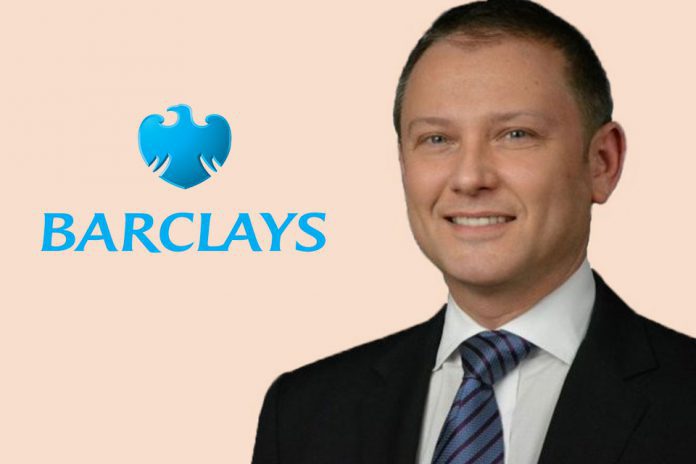Open banking will play a major role in the evolution of the market; however, it could create a number of problems which need to be solved according to according to Barclays UK managing director and head of strategic, wealth management Slava Shafir.
In January this year, the Revised Payment Services Directive (PSD2) bought with it a number of opportunities for the financial sector, including opening bank. As a result, financial institutions are now required to share consumer information with third parties, when they are directed to do so.
The primary purpose of the regulation was to increase efficiency and transparency in the payments industry, with open banking helping financial institutions open up and partner within the ecosystem.
The initiative is encouraging established financial institutions to partner with FinTechs and WealthTechs, providing them with new solutions and technology which their clients now demand. However, there are a number of risks associated with the sharing of data, especially with cyberattacks on the rise.
Shafir said: “In the next 5 years open banking and partnering will be the future of the industry. It will continue to evolve but what open banking will do is create other problems to solve. These need to solved to create the opportunities.
While open banking and wider sharing of data has been a big benefit to the market and opened up a wide variety of deeper opportunities for consumers, there is still an issue with trust.
Cyberattacks have become much more prominent and wide spread, making people very sensitive to what potential risks there are. This is magnified when it involves financial data and there needs to be a good level of trust between the customer and institution.
Shafir said, “There is absolutely potential risk, but with that, if you think about a firm, we should build sufficient controls. It needs to be driven by the client or customer, who’s ultimately data that is, and ultimately that customer will decide if the convenience wins or not.”
While this level of data sharing is relatively new to the UK, it has been much more common in other countries like Germany and Norway. As customers begin to gain a deeper understanding and experience data sharing more, it will be easier to understand their comfort levels.
However, it is not all doom and gloom. Identity authentication is just one of the areas Shafir sees as benefiting from increased access to data. However, this could also be a potential risk point. The challenge lies in balancing the act of opening up systems, which will allow for more innovation and enable a better customer experience, with making sure everything is protected.
“One important thing that I’m thinking about is identity authentication and how that becomes your credential. Because if you actually access your ecosystem how do you protect it as well. As we know with cyber and everything that’s taking place in the world, it’s a race that never.
At the moment financial institutions are currently trying to work out how to orchestrate all of the new services, but the key thing is that it is safe but also flexible.
PSD2
Through the implementation of PSD2 across Europe earlier in the year, and the open banking initiative it supports, there is a lot more data sharing and partnerships in the market. With more data being readily available, it has meant financial services can start to build deeper consumer profiles and really keep up with the needs of their customers.
Instead of having to wait for a customer to realise or worry about their financial future, financial institutions can begin to be more active. Through increased data, they can begin to inform customers around certain age that people tend to get married or buy a house at this stage in their life, helping to make a smoother financial planning route.
At the core, its simply that financial institutions need to keep up with their consumers needs, which has not been as simple as expected. “I think the answer is obvious but somehow it doesn’t work in the financial services, because the people that are working on some of those propositions are too far removed,” he added. That being said, Shafir sees this is changing and banks are experimenting with technology and WealthTech solutions and building a data sharing ecosystem.
The reason financial services have been a little too far removed is because previously they didn’t necessarily have to think about the consumer needs as much as they had sales people contacting directly or people went to the bank to buy the product, Shafir stated. But things are changing for the better, “We are evolving in how we develop with startups, as well as internally, by taking sufficient time to think about the regulatory risk. The more we do with a partner, the more we actually get smarter about data and testing, and really learn how to quickly evolve, kill and test and evolve again.”
Open banking has increased the number of FinTechs partnering with traditional financial institutions, onboarding them for capabilities they are excelling at and which FIs might not be as good at. Partnering can help with the speed to market, reduce risk, and incorporate people that don’t have the legacy way of thinking, or those that might approach problems in a different manner. Shafir does believe if a firm already has the capabilities to offer a new tech-based solution, like robo-advisory, and its relatively easy to market then there’s no issue with doing it in-house.
However, he said, “I think sometimes that when we think about setting up new business propositions, we under estimate what everything takes to actually stem that out. So, I think knowing what matters, how much you need, and what is unique to you, is what each organisation needs to figure out. Partnering with FinTech or any tech, gives you the ability to supplement the gap so if you think about that it will deliver immediate benefits.”
One of the added bonuses of partnering with a WealthTech is it can open up new revenue streams or offerings, which the FI might not have otherwise offered. A key example of Barclays doing this exact thing is with its new partnership with invoice financing platform MarketInvoice, which was completed a couple of months ago. As part of the deal, the bank took a ‘significant’ minority stake in the company and will give its customers access to digital invoice financing.
This service will be introduced to UK SME clients of Barclays over the coming months in areas including East Midlands, West Midlands, Herts and North West London. A full roll-out is scheduled for next year. Barclays made this partnership as it had identified the areas it needed to evolve in, what its customers wanted and how they could fill this gap.
“You want long term partnerships whether it’s a FinTech or not. I think you should treat it like that, you should be open and collaborative, know what you’re using it for, what you bring to the table and I think commercials will reflect that. But you need to be vested in their success and they in yours. If you can find commercial terms which align to that, which quite often you can, then it really works.”
Global WealthTech Summit
Salva will be speaking at the Global WealthTech Summit on 7th November 2018 in London. He will be discussing successful models for partnerships between wealth and asset management firms and startups and scale-ups and the benefits of actively engaging with the startup market. Join him and 500 delegates at the Global WealthTech Summit.
Copyright © 2018 RegTech Analyst






